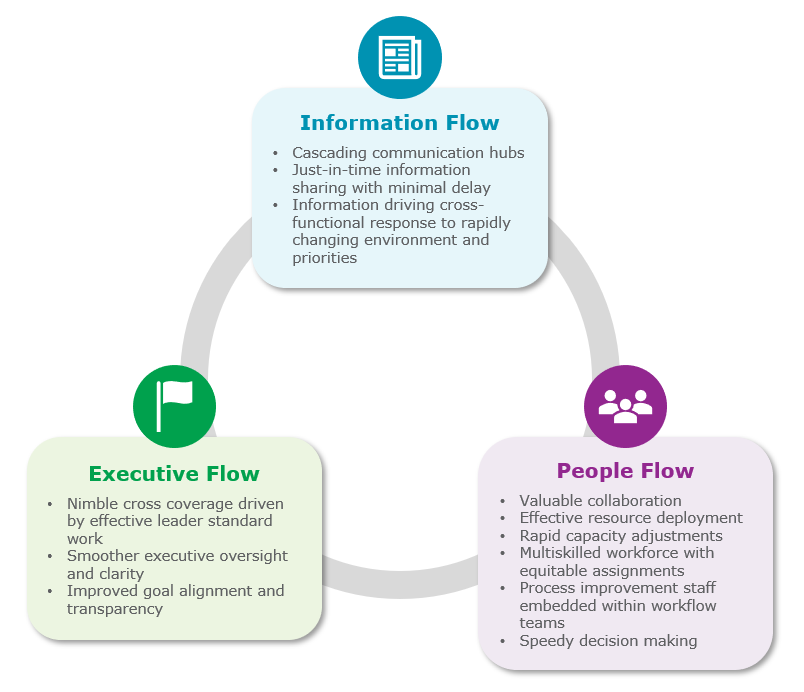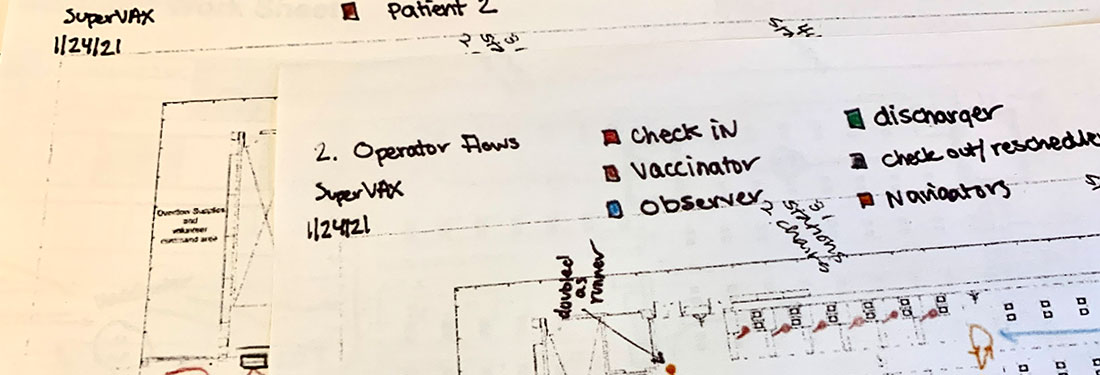Learning Through Crisis: After Action Review and Process Improvement
Our healthcare partnerships across the globe have afforded us a broad and relevant perspective on how diverse healthcare systems have responded to the challenges of COVID-19. These challenges include unprecedented inventory management variations, rapid testing and surveillance processes, virtual visit expansions, safe elective surgeries and future surge planning. However, within these challenges lie the seeds for successful healthcare systems. Aligned leadership, clear priorities, and a unified process improvement management system all contribute to a responsive learning culture that works diligently to solve problems and deliver sustainable quality improvements.
We sat down with leaders from our five NHS healthcare trusts to facilitate a COVID-19 After-Action Review session. The After-Action Review is a professional discussion of an event, focused on performance standards, that enables staff to discover for themselves what happened, why it happened, and how to sustain strengths and improve on weaknesses. Candid structured reflection and insights from various perspectives are shared, providing opportunities for teams to collaborate, improve and thrive through challenge.
A standard After-Action Review includes the following provocations:
- What did we set out to do? Key intent? What we wanted to happen?
- What did we actually do? Key facts about how it unfolded? What a video camera would show?
- What have we learned? What we know now that we didn’t know before? Strengths and weaknesses discovered? Advice we would give to someone facing this situation?
- What are we going to do? How to sustain strengths and improve weaknesses? Individual or group actions we’ll take?
- Who are we going to tell? Other teams or colleagues who will benefit from this knowledge? Best way to share?
As background, these trusts have been in a long-term collaborative partnership with Virginia Mason Institute where we advise and support their continuous improvement journey and help them evolve their management system infrastructures and develop their people in the science of improvement.
The After-Action Review team identified the following positive adaptations demonstrated during the first wave of the COVID response.

The teams learned that crisis response that includes a unified management systematic approach to rapid problem solving was an excellent platform to identify six broader system issues present across the trusts.
- Simplify command structures
- Focus on data driven decision making
- Advance decision-making roles and responsibilities
- Create informed purchasing decision processes
- Structure planned after action reviews in flow
- Leverage A3 thinking to support complex problem solving
As the After-Action Review process revealed, the COVID pandemic created a rich and challenging environment to test improvement methodology resiliency and solve challenges. Explicit, proven standard principles and methods, coupled with strong adoption of standard leadership management behaviors clearly supports a transparent learning environment that advances executive strategies and ultimately the health of our communities at large.





